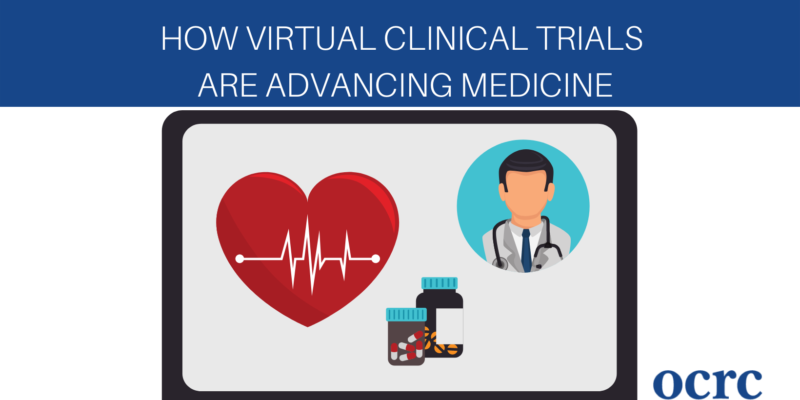
In the midst of the Covid-19 pandemic, many of us have had to adjust to a more virtual lifestyle. Ths includes working remotely, attending school virtually, and, of course, lots of online shopping and food delivery.
Many have also begun paying closer attention to the world of clinical research, especially as pharmaceutical and biotech companies have been working hard to develop a Covid-19 vaccine.
Clinical researchers, like many of us, have also shifted to a more virtual way of life. Virtual Clinical Trials (VCTs), also known as remote or decentralized trials, are a relatively new development in the world of clinical research. While VCTs were up-and-coming before the pandemic hit, they have undoubtedly risen in popularity as they are now the only way for many clinical studies to be completed due to the current restrictions.
Fortunately, VCTs come with several benefits. By implementing technologies such as apps, electronic monitoring devices, and online social platforms, researchers can increase the efficacy of clinical trials through shorter volunteer recruitment periods, lower dropout rates, and more efficient data collection methods.
Approximately 30 percent of clinical study failures are due to difficulties enrolling patient volunteers. Volunteer recruitment is also a significant factor when it comes to delays in clinical trials.
While traditional clinical trials recruit patients through hospital visits, clinics, and print ads, VCTs can now recruit patient volunteers worldwide using search engines and social media, without the limitations of geographic location. This also means that clinical studies can recruit a more diverse pool of volunteers, which is essential for accurate representation in clinical research.
In addition to recruiting larger sample sizes of patient volunteers, VCTs also decrease the dropout rates of volunteers who would otherwise not be eligible or willing to participate for the full duration of the clinical trial.
VCTs are considered to be more patient-centered than traditional clinical trials, especially as they remove the challenges of accessibility; patients do not need to worry about making time for travel, taking time off work, or mobility issues. Because patients are able to participate from their own homes, with their own phones or devices, virtual trial participation comes with the perks of comfort and convenience.
Through VCTs, researchers have one single, consolidated site—or one in each country—with digital data contributions. This results in a decrease in travel expenses, and an increase in data collection efficiency.
In traditional clinical trials, data collection is only possible during a physical visit with the patient volunteer. Virtual trials allow for data collection through smartphones, apps, smartwatches, electronic patient-reported outcomes, and electronic diaries.
Because VCTs are still relatively new, there are still several unprecedented protocols and challenges to consider. For example, extra steps must be taken to ensure data protection/patient privacy concerns when sensitive info is transmitted online. Additionally, the increased use of technology may deter older generations from participating in virtual trials; for some participants, human interaction is necessary for establishing a sense of trust.
Close monitoring is not always an option in VCTs, so they may not be suitable for all health issues, such as life-threatening diseases that require in-depth, in-hospital monitoring. Virtual trials mean that there is no medical staff working directly with the patients. Hence, they are fully responsible for data collection and transmission. Trained professionals generally oversee such tasks of this nature.
Technology can also come with its own challenges. Hospitals have backup generators, but patients participating from home may lose data if they experience a power outage or device malfunctions.
Taking the benefits and limitations into consideration, it’s fair to say that many clinical trials could benefit from a hybrid design, combining the best aspects of virtual and traditional trials. After all, virtual trials will likely continue even after the pandemic is over. If anything, Covid-19 may have been a catalyst for speeding up the process of normalizing VCTs.
Right now, many clinical trials could benefit from a hybrid design (online and IRL). Virtual trials will likely continue after the pandemic is over. If anything, Covid-19 might have been a catalyst for speeding up the process of normalizing VCTs.
If you are interested in participating in a clinical trial, check out our current studies, which are updated on a regular basis.
